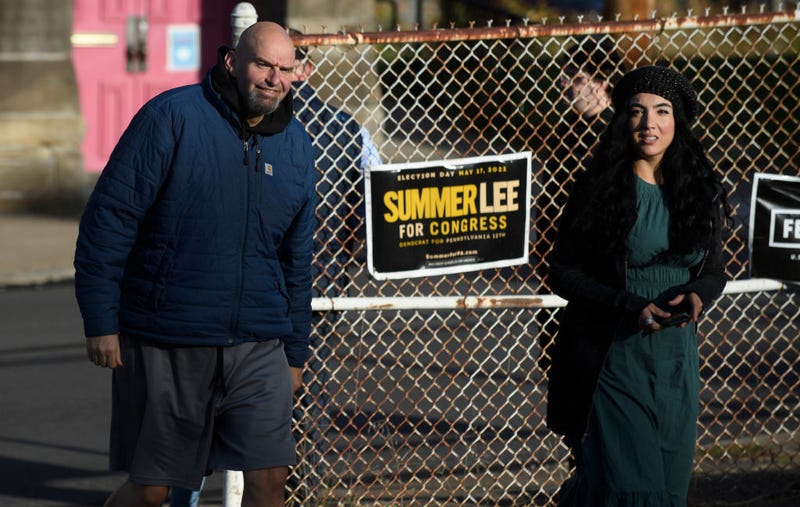
Pennsylvania Sen. John Fetterman has been in the spotlight since he sought treatment for depression earlier this year. Since his brief hospital stay, both he and his family have made efforts to destigmatize talking about mental health.
The senator’s wife, Gisele Fetterman, joined the Bubba Show on 100.7 StarPittsburgh to talk about mental health awareness month and her husband’s journey.
After the senator came forward with his mental health struggles, Fetterman said that she was attacked by many who placed the blame on her for his depression. Sadly, she says this wasn’t the first time.
“I was blamed when he had the stroke. It was ‘my fault,’” Fetterman said, noting that she thinks society has placed blame on women in a lot of these situations.
Fetterman also shared that she thinks the public’s response, and sometimes backlash, to someone coming forward and talking about their battle with mental health can result in some never seeking help.
“I think that’s why a lot of people don’t speak out, a lot of people don’t share, because they know that there will be backlash because they’ve seen it happen to other people,” Fetterman said.
When it comes to when she could tell her husband needed help, Fetterman shared that the senator has always been sad and very empathetic, things that she had grown used to as they were a part of his personality.
“It was who he was. I loved who he was, and that was part of his personality,” Fetterman said. “He would say, “You’re just too happy, Giselle. I’m a normal level of sad.’”
However, after he won his election against Republican Mehmet Oz, Fetterman said her husband didn’t have the emotions that are expected from someone winning a tough race.
“I expected to see relief, something to come over him, like a weight off his shoulders after he won, and it just wasn’t there,” Fetterman said. “That’s when it was alarming to me.”
To hear how the Fettermans discuss mental health with their family, how the senator is doing now, and more, listen to the full interview here:
For those also struggling, Audacy's I’m Listening aims to share valuable resources for those who need to connect, heal and share their own stories. Audacy's I’m Listening initiative aims to encourage those who are dealing with mental health issues to understand they are not alone. If you or anyone you know is struggling with depression or anxiety, know that someone is always there. Additionally, the Suicide & Crisis Lifeline is available 24 hours a day, 7 days a week at 988. Find a full list of additional resources here.


